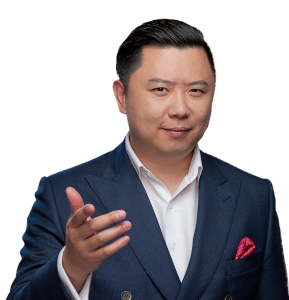Photo credits: Kathy Hutchins / Shutterstock.com
There are many entrepreneurs that I study and follow. Richard Branson is one of my heroes. Not just because he is a billionaire, but because he is the only entrepreneur in the world who has built 12 different billion-dollar companies in 8 different sectors.
To build one billion-dollar company in one sector is already extremely difficult for a person to accomplish in their lifetime. So, how did Richard Branson build 12 different billion-dollar companies in 8 different sectors?
To accomplish this, he’d have to be an incredibly innovative, intuitive, intelligent entrepreneur. That’s why he’s one of my heroes.
Richard Branson, one of the wealthiest entrepreneurs in the world, is worth an estimated $4.9 billion. Branson is a British business magnate, philanthropist, investor and best-selling author. He founded the Virgin Group in the 1970s, which controls more than 400 companies in various sectors. His companies under the Virgin group include successful travel companies, airlines, health clubs, hotels, radio stations, as well as the cell phone company Virgin Mobile.

Photo credits: NextNewMedia / Shutterstock.com
Let’s not forget the famous record company Virgin Records, which he sold for a cool $1 billion. He used the money to invest into his billion-dollar airline company, Virgin Atlantic. Branson recently began a cruise line company called Virgin Voyages, which expects to board its first passengers in 2020.
Branson always wanted to be an entrepreneur. His first business venture, at the age of 16, was a magazine he founded called Student. Today, Branson is far too humble about the 12 billion-dollar companies he has founded. In the year 2000, Branson was knighted at Buckingham Palace for “services to entrepreneurship”.
Below are Richard Branson’s top 9 rules for success:
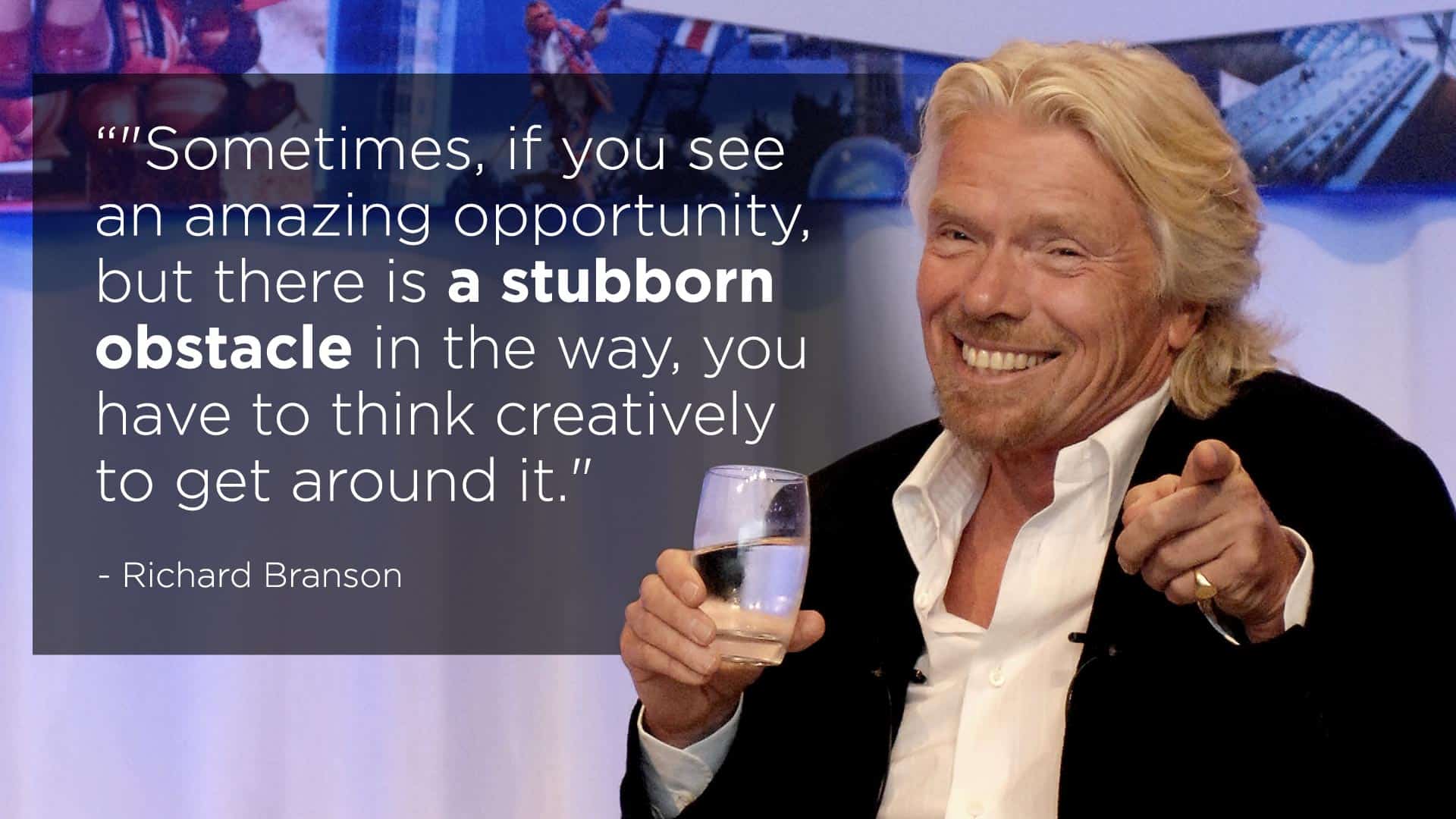
Photo credits: Sergei Bachlakov / Shutterstock.com
1. Overcome Obstacles
In a TV interview, Branson once explained that at an early age, he found conventional schoolwork hopeless, and didn’t know at the time that he was dyslexic. Because traditional school seemed hopeless, he decided at a young age that he needed to get out of that environment and carve his own path.
As a student, because Richard Branson had a learning disability, the school system labeled him in a certain way to make his future seem bleak. The school system probably wasn’t telling him, “You’re going to be super successful! You’re going to be a billionaire!”
Branson later said, of overcoming obstacles: “Sometimes, if you see an amazing opportunity, but there is a stubborn obstacle in the way, you have to think creatively to get around it.”
My experience as a young student was similar to Richard Brason’s. When I first came to Canada, I was a C student. I didn’t speak much English, which is probably why I flunked English. What felt worse, was that I didn’t have many friends. I definitely did not have a great report card at school. Considering how successful I am today, would it surprise you to learn that I never graduated from college, either?
C Students – the ones who don’t do well in school – often are the ones who go out there and build mega-successful companies. They often become successful entrepreneurs. And the A students often end up working for the C students.
I didn’t do particularly well in school, and neither did Richard Branson. So, if you’re not an A student, don’t let that stop you. Know that your skills probably can’t be discovered within the walls of a rigid, traditional educational system. If your skills are entrepreneurial, you’ll soon realize that out in the real world, you have high-income skills. Meanwhile, those A students are unhappy at high-income jobs with hostile office politics.
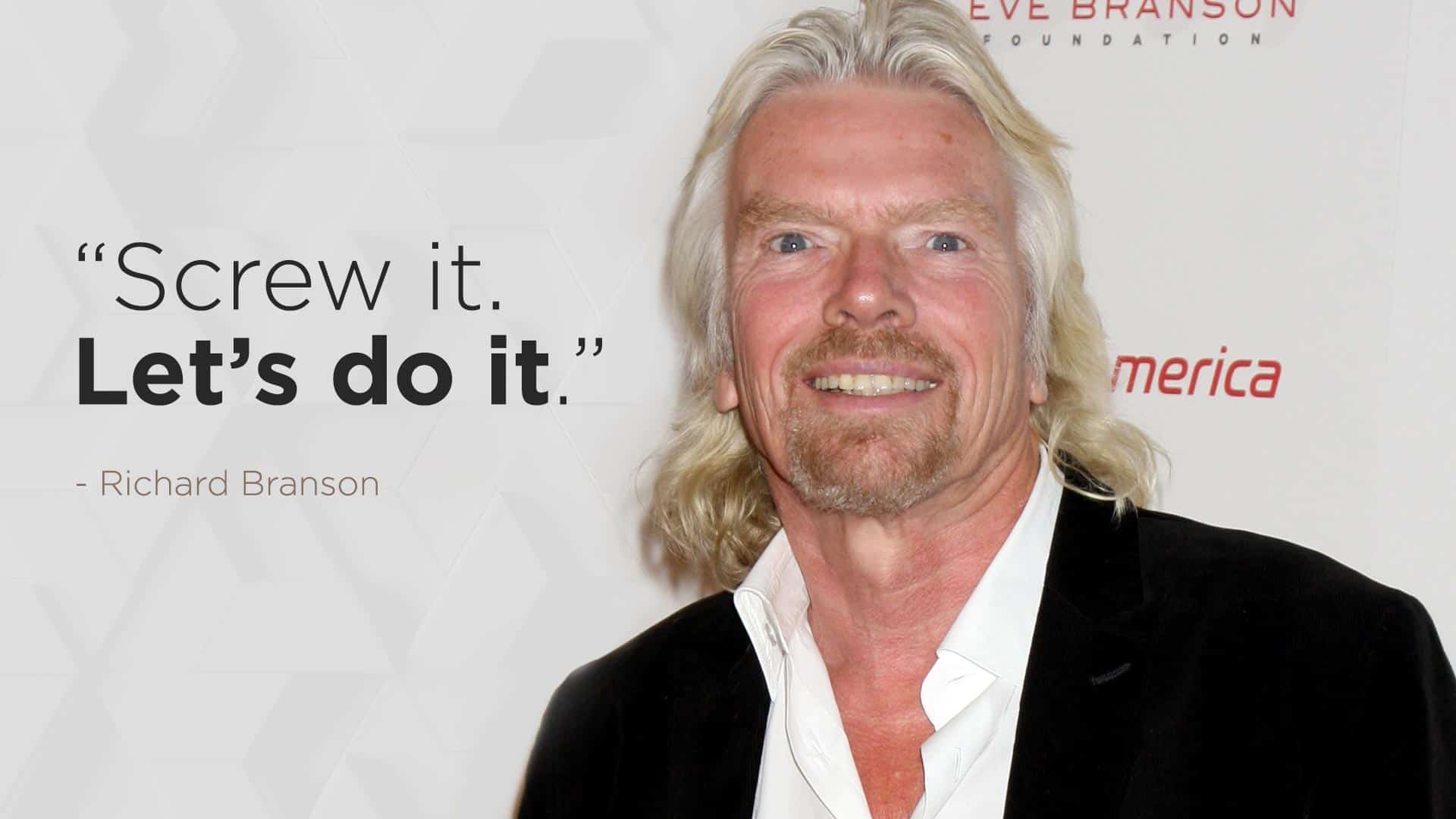
Photo credits: Kathy Hutchins / Shutterstock.com
2. Just Do It
Richard Branson once said in an interview, “To become an entrepreneur is not easy. A lot of people who try to become entrepreneurs fail along the way. Good ones pick them up and try again and try again until they succeed. An entrepreneur simply needs to come up with an idea that will make a positive difference in other people’s lives. And say screw it, let’s do it.”
“Screw it. Let’s do it.” This quote became a famously-shared quote of Branson’s. It’s still one of my favorite Richard Branson quotes.
Being a great entrepreneur isn’t about knowing everything and being able to do everything. You might have a chance for success if you have a good idea, and have good people around you who support you.
Here is my definition of being an entrepreneur: I believe that an entrepreneur is a person with a vision, who orchestrates other people’s time, money, resources and talents to make his or her vision real.
In other words, the best entrepreneurs are the ones who understand the importance of a good team of people behind you, who believe in your vision and want to be part of it.
Having a vision is one thing, but actually doing something to make it come to life is another feat. So, what are you waiting for? Just go for it.
3. Shatter Perceptions like Richard Branson Did
I remember when I was a copywriter, struggling to get clients. At the time, I was young and I had a thick accent. I spoke with average English, so it wasn’t easy to get clients. What could I do to elevate and get myself to that next level, and start seeing success faster? I needed to pay off my debt and support my mom, so I wanted to start succeeding faster.
I talked to some more seasoned, more experienced copywriters. They told me things like, “Dan, you have to pay your dues. You have to write for a lot of people for free, for many years, and then eventually you can charge what we charge, which is about $10,000 per client.”
I decided to ignore conventional wisdom like this. Why? Because I didn’t want to write for free for years, like they were suggesting.
I decided I’m not taking the stairs to success. I’m taking the express elevator.
So, I came up with an idea to fast-track my own success. I put together a product called, “Million Dollar Marketing Secrets of the World’s Greatest Copywriters”. It’s a long title, and it might not be the best title, but I was young – so give me a break.
I interviewed some of the best copywriters in the world to create this product full of their marketing secrets.
There I was, in my one bedroom apartment, living with my mom. I recorded the interviews using a little cassette tape player. Using just my phone – my landline – and I held the phone up to my little cassette tape player. You can laugh, it’s okay.
I was a nobody. But you’d be surprised how many big influencers are willing to provide an interview to just about anyone who actually asks them. About 18 of the biggest marketers and best copywriters agreed to do it. That’s how I was able to put together this product.
When I approached some of the best copywriters and marketers on the planet, nobody said no to me. Nobody questioned me. Especially if I name-dropped who my last interview was with.
This is branding by association.
I would say, “I interviewed several successful copywriters, and I now have an educational program, and several exclusive interviews with the masters. If you buy my product, you can access all of their secrets for only $3,000.”
I was resourceful enough, clever enough and creative enough to think of the best and most well-known copywriters who others would want to learn from, and call them for an interview.
I built my career from there.
Influencer Tony Robbins would agree that it’s not about having resources, it’s about being resourceful. Interviewing all those people was proof that I was resourceful. This was an early indicator that I was the type of person who would be successful later in life.
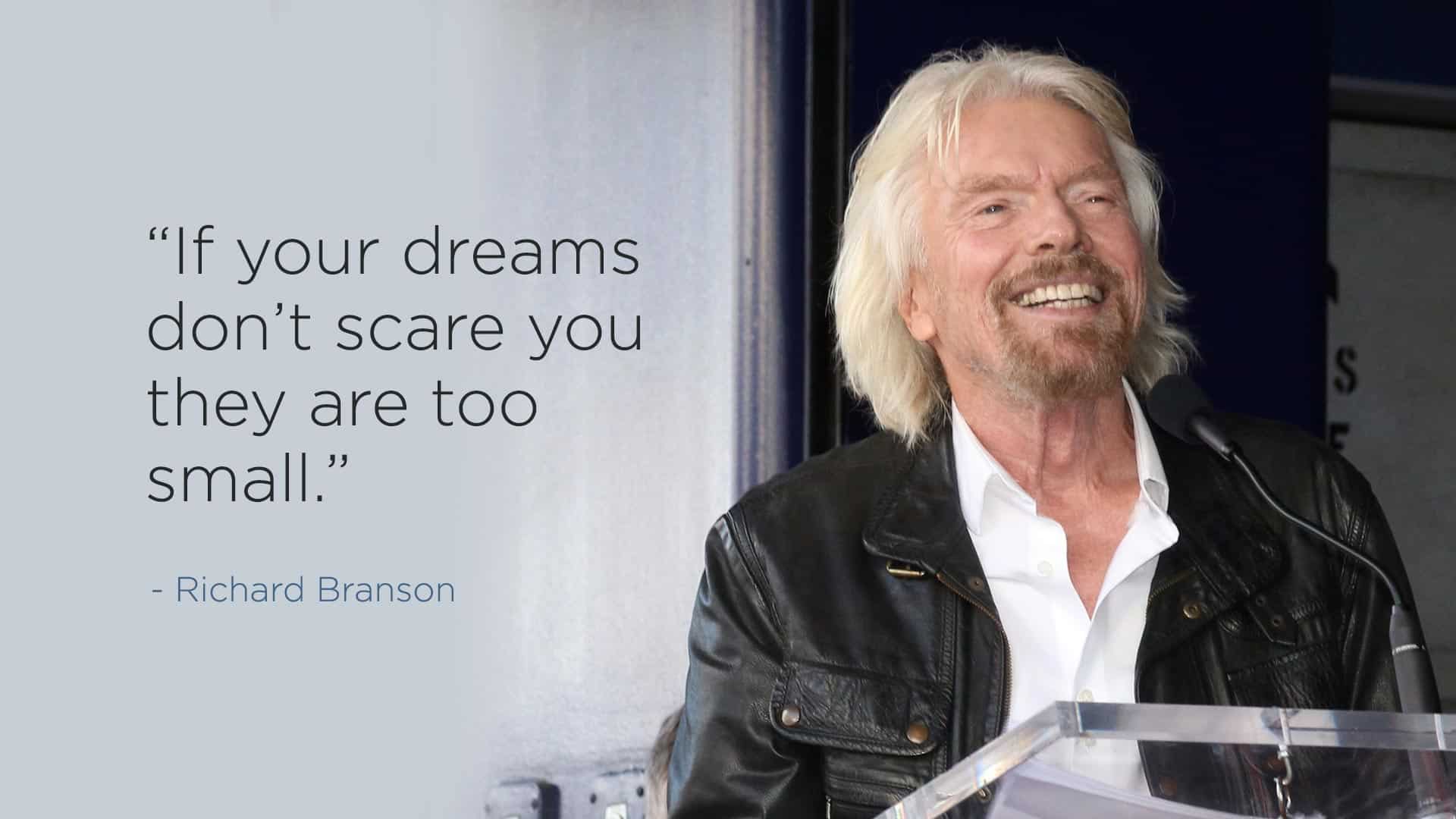
Photo credits: Kathy Hutchins / Shutterstock.com
4. Take Risks
Richard Branson once said in a media interview that he’d be willing to put his house on the line for the next business venture if he believed in it.
Branson also said, “If your dreams don’t scare you they are too small.”
A lot of people think entrepreneurs take crazy risks, and often, they do. Richard Branson takes a lot of risks. He believed your dreams are too small if the idea doesn’t scare you.
I used to take a lot of risks, but now that I’m matured and I’m wiser and more experienced, I now take calculated risks. Before I do anything, I’m not so blinded by my own ego that I’ll put everything on the line. I don’t just look at the upside of the risk anymore, I also look at the downside. Now, I expect the best, but also prepare for the worst.
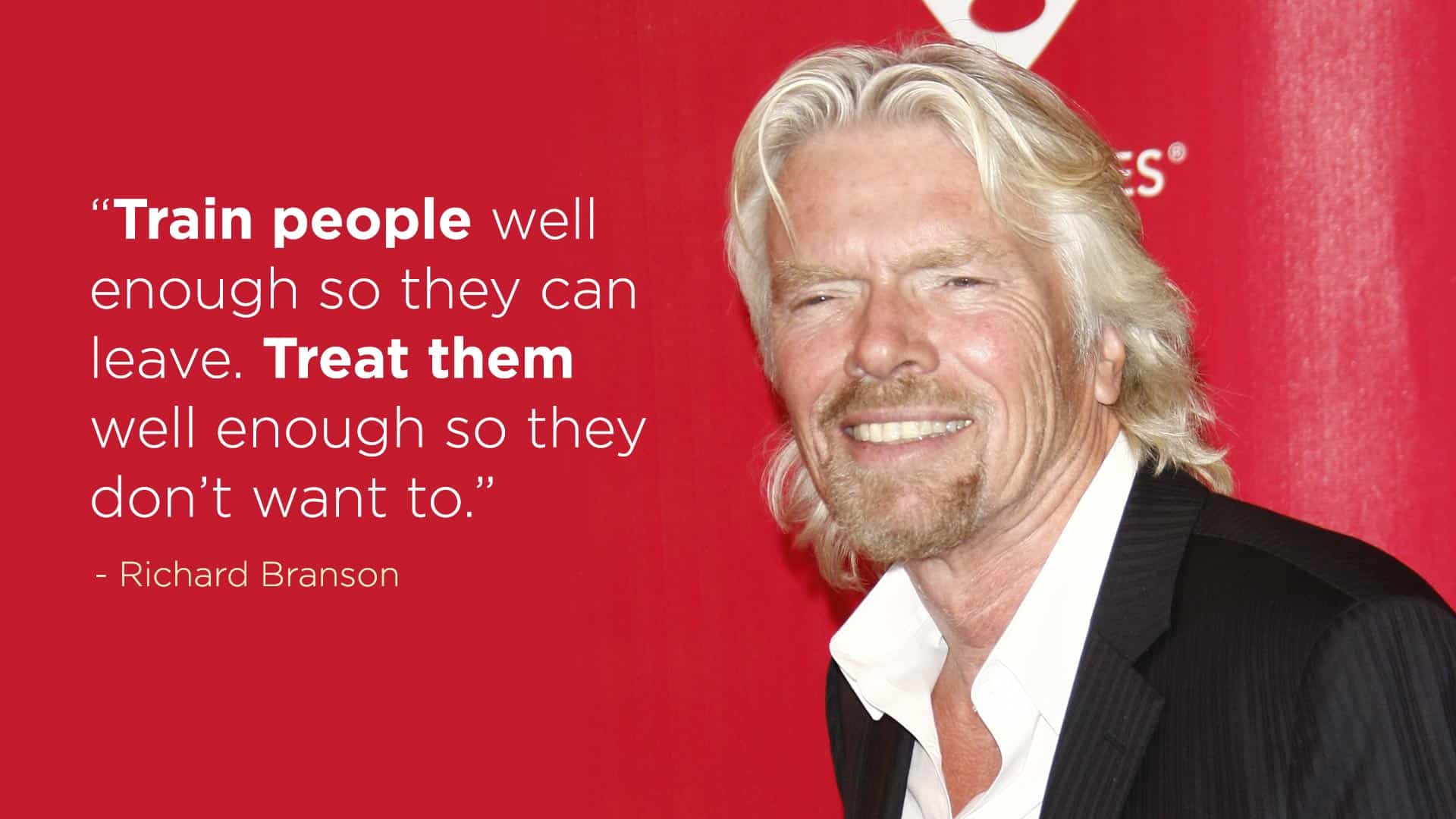
Photo credits: Joe Seer / Shutterstock.com
5. Be a Good Leader
Richard Branson said, “Never use the ‘I’ word. You’re a team. It’s we’re doing this, we’re doing that. Be a great leader of people.” I like that he reiterates the importance of using the word “we” instead of “I”.
One of the most important qualities of a great entrepreneur, is leadership. Leadership is not easily taught. There are many leadership books out there, and you can learn a lot about leadership from the media as well.
Are you a Game of Thrones fan? I learned a lot about leadership from Jon Snow. Yes, plenty of books and media can teach you about leadership, but it can’t easily be taught. Some people, however, are just natural born leaders.
Great leaders treat their team well, so that their team wants to be loyal and help the company grow.
Richard Branson said, “Train people well enough so they can leave. Treat them well enough so they don’t want to.”
Branson believed in the importance of a good team, and good people. With team Dan Lok, I feel the same way. It’s not about me. It’s about “us”. The company might use my name, but I only play a part in team Dan Lok. Everyone else on my team plays an important role as well.
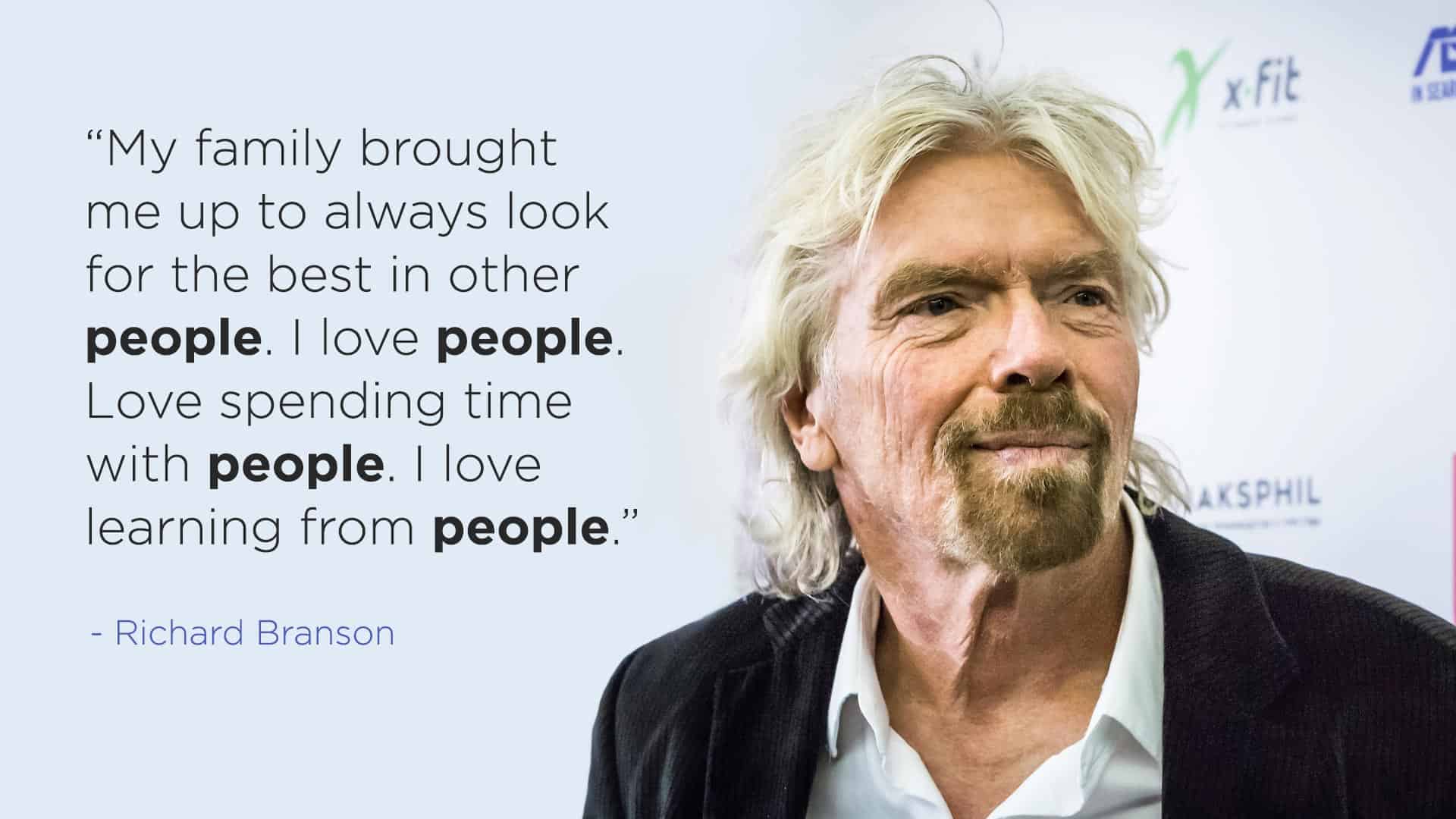
Photo credits: m.kru / Shutterstock.com
6. Be Good With People
Richard Branson once explained, “The absolute key, is how good you are with people. If you genuinely care about people, and surround yourself with people who are genuinely excited about what you’re doing, and you draw out the best in people. If you inspire your people and praise your people, not being critical of your people.”
This is easier said than done. Part of being a great leader is being able to inspire others to be great. As a leader, you need to get them to believe in themselves, and show that you believe in them. That’s leadership. That’s how you empower and inspire people.
Richard Branson has always been a people person. Branson said, “My family brought me up to always look for the best in other people. I love people. Love spending time with people. I love learning from people.”
In the early stages of my career, I used to be a control freak. I was a rugged individualist. I mistakenly believed in the expression, “If you want something done right, you have to do it yourself” and, “It’s my way or the highway.” I didn’t trust other people to care like I do, or do something as well as I could do it. That limited my company’s growth.
Now, I have this amazing team, and I count on my people. Each member of my team has their own specific skills, and they’re experts in their field. This means that they can do certain things way better than I could. I know what I’m good at, and now, I only focus on a few core competencies where I excel. I only focus on the things I’m brilliant at (my genius zone) and I delegate the things I’m average at to people on my team who are experts at those things.
7. Think Big and Plan Ahead
Richard Branson said that selling his record company for a billion dollars was a bit like selling his child. It wasn’t an easy decision for him. In a media interview, he said, “People said we were mad for selling the record company and putting the money into an airline. As it turns out, of course, the record industry has collapsed, and the airline industry hasn’t done so bad for us.”
Richard Branson is so humble. He says, “It hasn’t done so bad” when referring to his airline company, when it’s another billion-dollar company. In 2000, Branson received the Tony Jannus Award for his accomplishments in commercial air transportation.

Photo credits: Craig Russell / Shutterstock.com
Branson sold the record company and invested the money into an airline. That was a smart business decision, even though it was extremely difficult for him to let go of his baby, Virgin Records.
The lesson is to be able to see a little further ahead. You want to sell in an up market. You don’t want to sell in a down market. Whatever I’m doing now, what if the technology becomes obsolete? What if consumer behavior changes? What if the needs in the marketplace changes? You need to predict the future, because you don’t want to be reactive when these changes happen. You’ll be better off if you can predict where things will be in a few years from now, and plan ahead.
For my organization, I think of things that could take us out of business or make us obsolete. If I know something is going to disrupt what I’m doing, then I want to be the one that kills my own business and replaces it with a better business. I want to be there first. If anyone is the disruptor, then I want to be the disruptor. I’d like to think three, five or ten years ahead. I want to reinvent my business model and put my old business out of business with a better one.
Blockbuster and Netflix are perfect examples of this. Blockbuster didn’t see how video streaming and the internet would disrupt their business. They didn’t see themselves as being big players in the entertainment business, they simply saw themselves as big players in the video rental business.
If they understood that they were in the entertainment business, and predicted what could disrupt their business. They didn’t predict the changes in how people would consume video content.
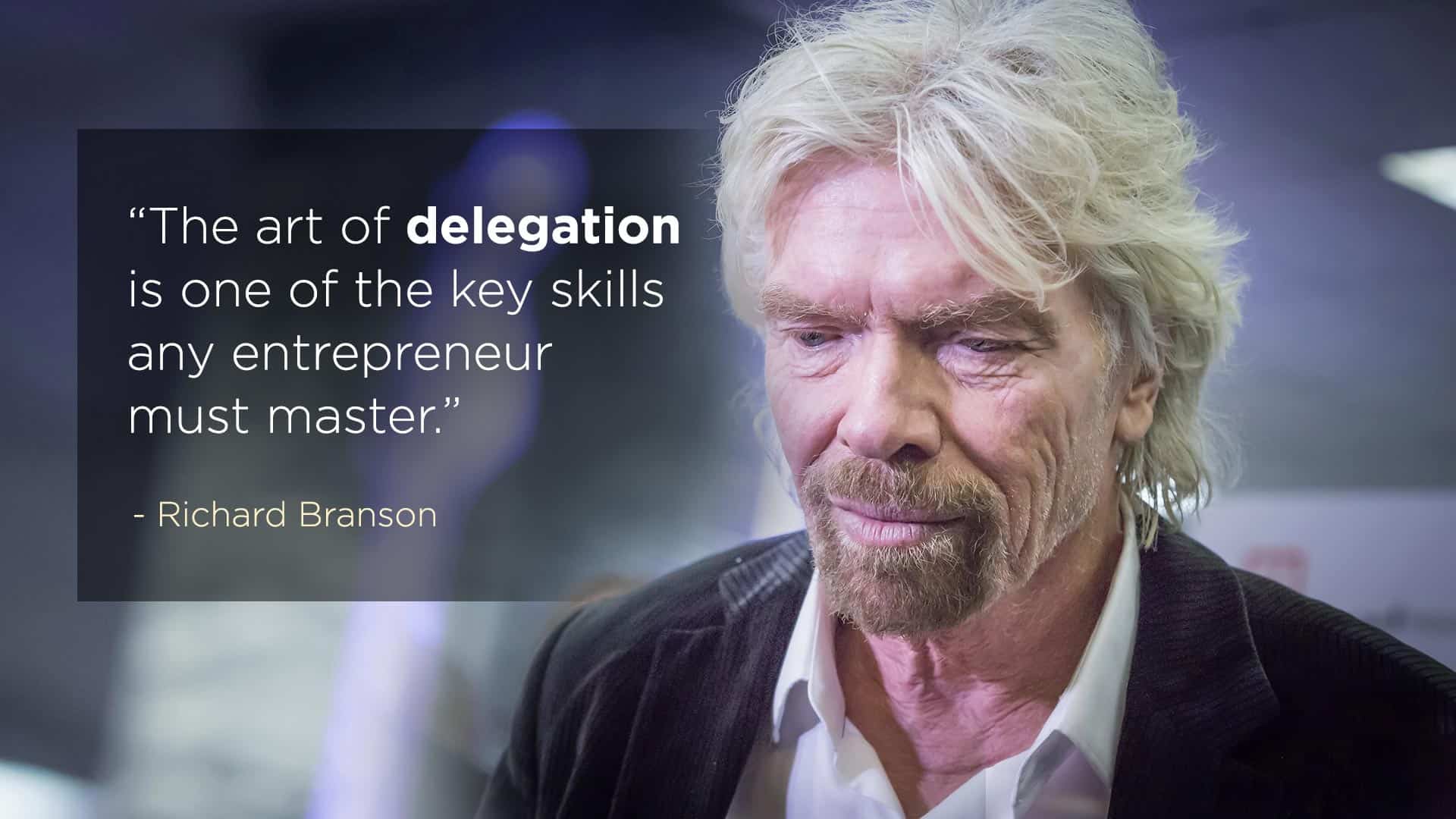
Photo credits: m.kru / Shutterstock.com
8. The Secret is Delegating
I remember watching a Richard Branson interview and hearing him explain the importance of delegation. “The art of delegation is one of the key skills any entrepreneur must master,” Branson said. He always said that a great entrepreneur is a great delegator.
He explained that whatever you’re spending all day doing, you need to stop and find someone better than you to replace you. That way, you can use your time to think about the next big thing. You can use your time to be a visionary.
Branson’s theory is that an entrepreneur is held back by trying to be a manager. An entrepreneur is not a manager. Rather, an entrepreneur is someone who is great at conceiving ideas, starting ideas, building ideas and then handing over to really good managers to manage the businesses.
I am not a micromanager, but rather, I am a visionary. I think of ideas, I come up with ideas, but I need implementers and managers to execute my vision. It’s important that I know I’m the creative type. That’s what I’m good at.
Like Richard Brandson said, good entrepreneurs are always thinking about the next big idea, and thinking about where the company’s going, and thinking about what’s next. When they delegate, they have more time to innovate. Elon Musk is another influencer who believed in the power of innovation and creating new ideas.
If you build a great team, and you delegate tasks, that gives you the freedom to spend more of your time thinking of the next big idea.
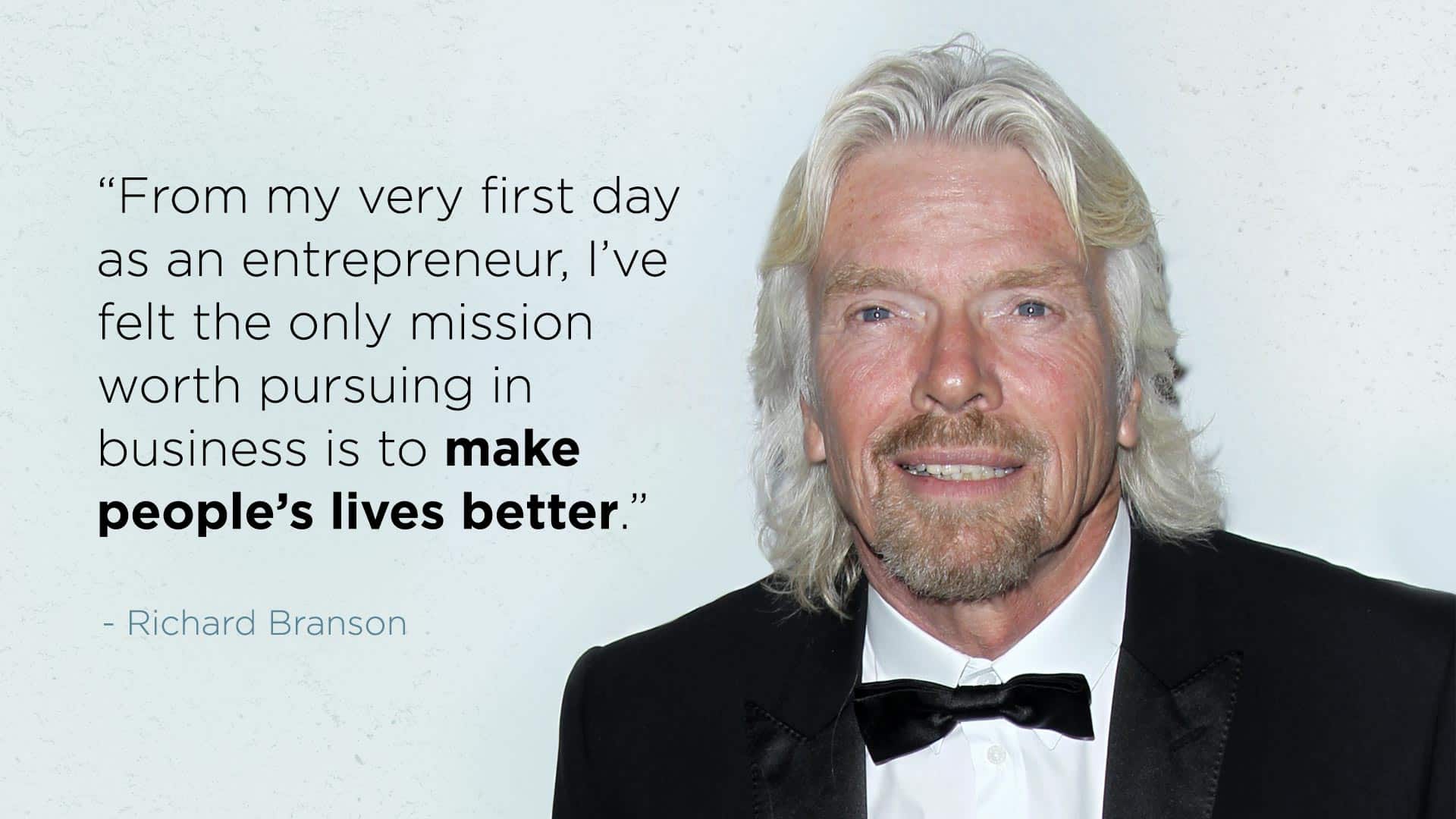
Photo credits: Kathy Hutchins / Shutterstock.com
9. Create a Brand That You Can Be Proud Of
Richard Branson has over 350 Virgin brands around the world. Regarding this, he said, “We actually have something we’ve got to protect and nurture. The brand is ultimately what Virgin is all about.” In another interview, he said “We want Virgin to be a company which we can be proud of . . . making a real difference in the world.”
We all have a primary question that drives us everyday. As an employee, that question might be “When is payday?”
For those of your who are entrepreneurs, your primary driving question is “How can I make it better.” We are always looking to come up with a better solution, or find something missing in the marketplace.
As Richard Branson once said, “From my very first day as an entrepreneur, I’ve felt the only mission worth pursuing in business is to make people’s lives better.”
Did you like these rules for success from Richard Branson? If so, check out the Related Posts on rules for success below.
